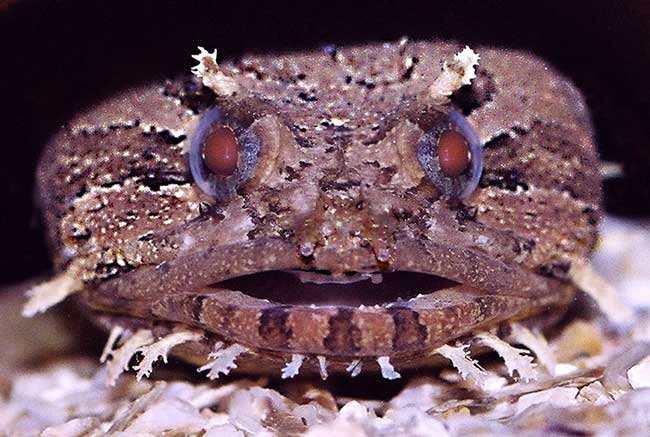Fish Eavesdrop to Avoid Becoming Dinner

Get the world’s most fascinating discoveries delivered straight to your inbox.
You are now subscribed
Your newsletter sign-up was successful
Want to add more newsletters?

Delivered Daily
Daily Newsletter
Sign up for the latest discoveries, groundbreaking research and fascinating breakthroughs that impact you and the wider world direct to your inbox.

Once a week
Life's Little Mysteries
Feed your curiosity with an exclusive mystery every week, solved with science and delivered direct to your inbox before it's seen anywhere else.

Once a week
How It Works
Sign up to our free science & technology newsletter for your weekly fix of fascinating articles, quick quizzes, amazing images, and more

Delivered daily
Space.com Newsletter
Breaking space news, the latest updates on rocket launches, skywatching events and more!

Once a month
Watch This Space
Sign up to our monthly entertainment newsletter to keep up with all our coverage of the latest sci-fi and space movies, tv shows, games and books.

Once a week
Night Sky This Week
Discover this week's must-see night sky events, moon phases, and stunning astrophotos. Sign up for our skywatching newsletter and explore the universe with us!
Join the club
Get full access to premium articles, exclusive features and a growing list of member rewards.
Fish can eavesdrop on the calls of dolphins to avoid getting eaten, a new study suggests.
"Probably a lot of fish can do this," said lead researcher Luke Remage-Healey, a behavioral neuro-endocrinologist at University of California, Los Angeles.
A bottom-dwelling fish found off the coast of Florida called the gulf toadfish [image] is prime prey for dolphins, which often listen to toadfish calls to find their targets. In fact, 80 percent of bottlenose dolphin diets containing sound-producing fish. But whether the toadfish peels its “ears” toward dolphins has remained a mystery.
Remage-Healey first suspected that gulf toadfish could listen in on hungry dolphins' calls two years ago while recording the mating calls of the male toadfish off the Gulf coast of Florida.
"Then, they all stopped calling," Remage-Healey recalled. "My field assistant noticed dolphins [image] foraging right over the toadfish site, and we heard we were recording dolphin sounds instead."
The researchers captured toadfish and placed each in its own cage and rested the cages on the seabed in the breeding patch. From underwater speakers, they played recordings of snapping shrimp sounds or dolphin sounds — both high frequency "whistles" that dolphins use to communicate with each other, and low frequency "pops" likely used to locate a quarry. The shrimp sounds mimicked a common background noise in the bay.
Results showed that the toadfish ignored the snapping shrimp sounds and dolphin whistles and continued on with their mating calls. But when the fish heard dolphin pops or combinations of pops and whistles, they drastically reduced their calling rates.
Get the world’s most fascinating discoveries delivered straight to your inbox.
Prior research revealed toadfish hear low frequency sounds best, consistent with the drastic response to the recordings of low frequency pops.
As confirmation, measurements of toadfish blood taken immediately after the dolphin sounds were played revealed that levels of the stress hormone cortisol shot up after they heard pops.
Remage-Healey, Douglas Nowacek of Florida State University and Andrew Bass of Cornell University in New York report their findings in the Nov. 15 issue of the Journal of Experimental Biology.
- Image Gallery: Freaky Fish
- Image Gallery: Venomous Fish
- How Dolphins Spin, and Why
- Dolphin May Get a Prosthetic Tail
- Whale-Dolphin Hybrid Has Baby 'Wholphin'

 Live Science Plus
Live Science Plus










